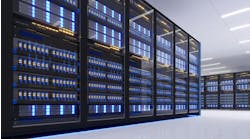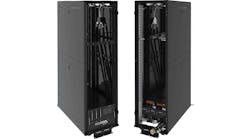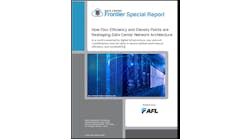Meta Platforms will build its data centers faster and run its servers for longer. Both moves are part of the company's strategy to be more efficient with its investments in its massive global data infrastructure.
In Wednesday's earnings announcement, Meta confirmed that it is canceling multiple data center construction projects, while shifting others to a new design that should be faster and cheaper to build.
The company is also extending the expected life span of its servers and network equipment, a move which will boost Meta's bottom line by about $1.5 billion for 2022. In December Meta determined that it can now use most of its servers and network devices for five years, up from 4 years as of year-end 2021.
Both moves will help Meta save money as its faces a difficult economy and the evolving landscape for virtual reality and generative AI (artificial intelligence), two technologies that will guide its future. The company reduced its projection for 2023 capital expenses by about $4 billion, which reflects both the abandoned data center projects and a consolidation of Meta's office leases.
Building Fewer Data Centers Faster
In December, Meta decided to overhaul its data center design to optimize its facilities for artificial intelligence, while also pausing construction on a number of its data center projects so it can "rescope" its new data centers with the pending design focused on AI,
Meta has not publicly itemized the data center projects that will be halted, but previous media reports indicate that it will cancel the planned expansion of its campus in Odense, Denmark, and pause recently-announced expansions in Texas, Alabama and Idaho. DCF has reached out to Meta for additional details of its plans.
"We have streamlined our future data centers to a new architecture, which we believe will be more cost efficient and more flexible that provides us optionality to support both AI and non-AI workloads," said Susan Li, the Chief Financial Officer at Meta, in Wednesday's earnings call. "We’re expecting that the new design will be cheaper and faster to build than previous data center architecture. We have a new phased approach that allows us to build base plans with less initial capacity and less initial capital outlay, but then flex up future capacity quickly if needed. We’re still planning to grow AI capacity significantly."
Meta operates 21 data center campuses around the globe to support its Facebook, Instagram and Messenger services. These data centers represent an investment of $16 billion and more than that span 40 million square feet of space. Meta typically builds between five and nine data center buildings on each of its huge campuses.
Servers Are Sturdier Than We Thought
Meta had previously extended the expected life of its servers in the second quarter of 2022, changing from 4 years to 4.5 years. Just two quarters later, the company further extended its estimate to 5 years. The financial impact of the changes was a reduction in depreciation expense of $860 million and an increase in net income of $693 million, Meta said.
The depreciation change only extends the useful lives of non-AI servers. With the rapid innovation in artificial intelligence algorithms and learning models, AI hardware will need to be updated more frequently than general purpose servers.
Meta joins the largest cloud platforms in extending its estimates on server life. As of 2020, the estimated lifespan of a server on a cloud computing platform was three years, an assumption embraced by all three of the leading platforms. Now Amazon Web Services now says its servers have a ‘useful life” of five years, while Google and Microsoft expect servers to last for four years.
These estimates are developed for accounting purposes, and can shift billions of dollars to a company’s bottom line by deferring spending on hardware and enabling assets to be expensed over a longer period. But the trend toward more durable cloud servers is also likely influenced by design refinements, and may help manage server fleets differently to support continued growth during supply chain challenges in the semiconductor industry.
Longer server life will also matter in navigating the supply chain challenges in the chip sector, which are expected to persist into the second half of 2022. The limited availability of new chips has created delivery challenges for many industries including automakers and equipment vendors.






